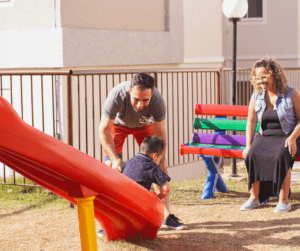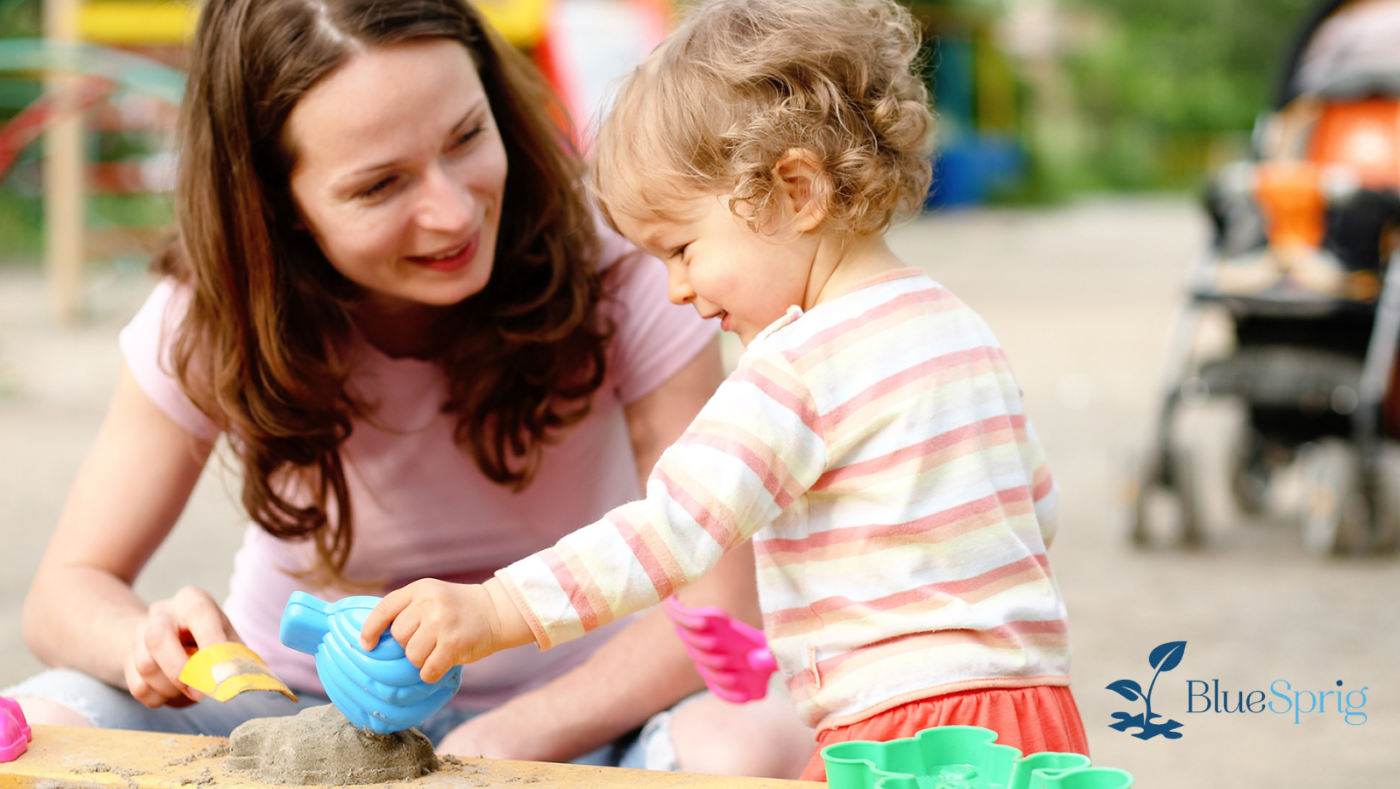How Community-Based ABA Therapy Could Benefit Your Child
In recent years, community-based ABA therapy has grown more popular among parents and caregivers looking to provide support for their children with autism and other developmental disorders. Unlike traditional center-based therapy, community-based ABA allows children to receive therapeutic support in real-world settings, which can be incredibly beneficial in promoting generalization and skill maintenance for kids. Plus, having the support of a trained ABA therapy provider outside of the clinic setting can help caregivers learn how to effectively support their child in community settings.
Understanding Community-Based ABA Therapy
Community-based ABA therapy involves delivering Applied Behavior Analysis (ABA) services in the child’s natural environments, like playgrounds, sports practices, or after-school clubs. This method focuses on real-life applications, helping children practice and reinforce skills where they naturally occur. By addressing behaviors and teaching new skills in these familiar settings, therapists can creatively apply more relevant and impactful interventions that directly align with the child’s daily routines.
Having their trusted ABA provider by their side in community settings allows children to adapt more easily and effectively, helping them to apply the skills they learn in therapy sessions across different environments and situations.
The Importance and Impact of Community-Based ABA
 Community-based ABA therapy is essential because it helps children apply learned skills in their everyday environments. This approach supports the transition of behaviors from controlled therapy sessions to real-world situations, enhancing a child’s ability to function independently.
Community-based ABA therapy is essential because it helps children apply learned skills in their everyday environments. This approach supports the transition of behaviors from controlled therapy sessions to real-world situations, enhancing a child’s ability to function independently.
By practicing in diverse settings like parks and grocery stores, children become more adept at handling different social and physical contexts. For your child’s first community-based ABA sessions, they will typically be accompanied by a Board Certified Behavior Analyst (BCBA), who will determine that the specific community setting is clinically appropriate. The BCBA will also ensure that your child will not engage in any dangerous behaviors during community-based sessions. Once your child has acclimated to community-based sessions, a Registered Behavior Technician (RBT) will begin supporting your child.
For example, for the first few weeks, your child’s BCBA will go with you and your child to the library. From there, if there are skills your child should be working on at the library that fall within the RBT’s training, then the RBT might accompany you on future trips to the library with them.
This method fosters independence and self-confidence, as children learn to navigate their surroundings with greater ease and competence. Community-based ABA also empowers parents and caregivers by involving them in the therapeutic process, equipping them with strategies and tools to support their child’s development consistently across various settings. This holistic approach ensures that therapeutic gains are not limited to the therapy room, but are integrated into the child’s daily life.
Typical Community-Based ABA Therapy Services
Typical community-based ABA therapy services include personalized sessions where an RBT accompanies the child to different locations such as parks, grocery stores, or extracurricular activities.
These sessions are designed to address the child’s unique needs and goals, helping them apply coping strategies and positive behavior techniques in real-world situations. The RBT provides real-time guidance and support, making the interventions more relevant and effective.
Collaboration with parents and caregivers ensures that the strategies are consistently applied across all settings, promoting better outcomes for the child and allowing them to access an environment that is more natural for them than a clinic setting.
Benefits of Bringing ABA Therapy into the Community
 Bringing ABA therapy into the community enhances the child’s ability to apply learned skills across different settings, and in doing so, increasing their adaptability and resilience. Practicing in varied environments, such as parks and grocery stores, allows children to develop more robust coping mechanisms and behavioral strategies that are applicable in everyday life.
Bringing ABA therapy into the community enhances the child’s ability to apply learned skills across different settings, and in doing so, increasing their adaptability and resilience. Practicing in varied environments, such as parks and grocery stores, allows children to develop more robust coping mechanisms and behavioral strategies that are applicable in everyday life.
This approach also improves children’s ability to interact socially by exposing them to diverse social situations. These experiences will give them a greater ability to navigate peer relationships and public settings more effectively and safely as they grow.
Additionally, involving parents and caregivers in these community-based sessions provides them with practical strategies to support their child’s growth consistently. The real-time feedback and guidance from an BCBA or RBT during these sessions make interventions more immediate and impactful, tailored to the child’s unique needs in real-world scenarios.
Success Stories
Imagine a child who struggles with meltdowns at the grocery store due to sensory overload. With the support of a trusted BCBA or RBT, the child can gradually develop coping mechanisms to manage the overwhelming stimuli. The provider helps the child practice techniques like deep breathing or brings along noise-canceling headphones, making shopping trips more manageable over time.
Similarly, a child who has difficulty joining after-school activities can benefit from community-based ABA by learning social skills and building confidence to engage with peers. The clinician provides real-time feedback and encouragement, facilitating smoother interactions and participation.
If a child faces challenges during doctor visits, the child can learn to tolerate medical procedures and wait times with their therapist present, reducing anxiety and disruptive behaviors.
These real-life scenarios demonstrate how community-based ABA can transform everyday challenges into opportunities for skill development and increased independence.
Who Can Benefit the Most from Therapeutic Support in the Community?
Children who often face behavioral challenges in settings outside of the therapy center, such as parks, libraries, and extracurriculars, stand to gain significantly from community-based ABA therapy.
Applying ABA therapy practices to community interactions is particularly beneficial for kids who need support with social skills, communication, community safety, and adaptive behaviors. The real-time guidance provided by a BCBA or RBT helps these children navigate social interactions and public environments more effectively. Additionally, children who experience sensory overload or anxiety in new or crowded places can benefit from the strategies and coping mechanisms taught during community-based sessions. The hands-on, personalized support ensures that interventions are tailored to each child’s unique needs, making it easier for them to apply the skills they learn in therapy to their everyday lives.
Parents and caregivers also benefit from this approach, as they receive practical strategies to manage and support their child’s behavior across different settings, ensuring consistency and promoting better outcomes.
BlueSprig’s Approach to Community-Based ABA Therapy
 At BlueSprig, our commitment to community-based ABA therapy stems from its profound ability to foster meaningful, lasting development in children. By delivering services in natural settings, we can create personalized and effective interventions that align with each child’s unique daily experiences.
At BlueSprig, our commitment to community-based ABA therapy stems from its profound ability to foster meaningful, lasting development in children. By delivering services in natural settings, we can create personalized and effective interventions that align with each child’s unique daily experiences.
By offering community-based ABA, we give our clients access to support as they generalize skills across various environments, enhancing the child’s confidence and independence. Our team of dedicated professionals works closely with families to ensure that strategies are consistently implemented, providing a cohesive support system. BlueSprig recognizes that every child’s needs are different, and the flexibility of our community-based model allows us to address those needs in a holistic and impactful way.
